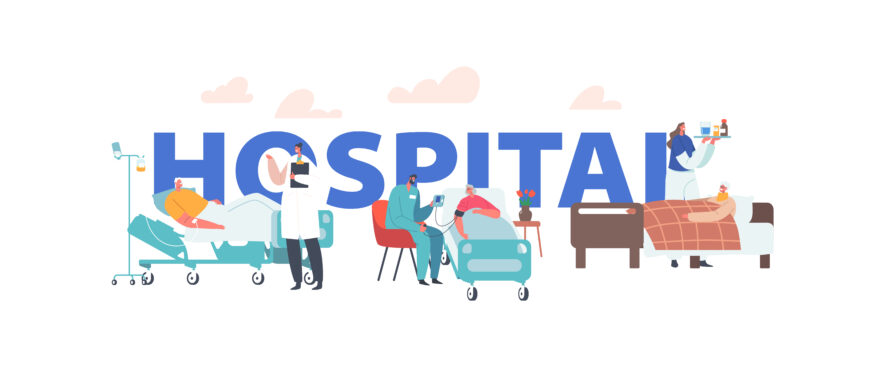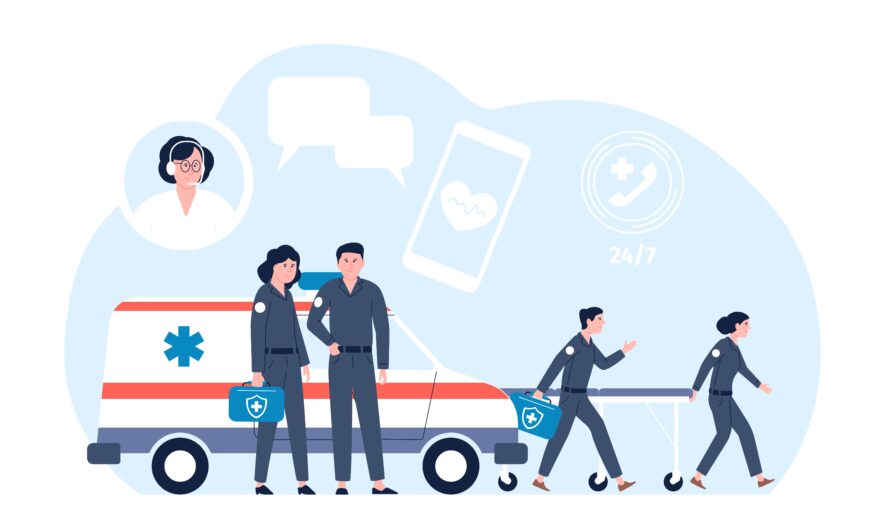- 海外添乗員として、お客さまが病気になったときの医療用英語表現について知りたい
この記事は海外添乗員へ向けて書いています。
病気の英会話は専門用語も多く、使わない単語が多いです。
海外で命にかかわる場面で、知らない単語を聞くと焦ります。
お客さまに説明できないからです。
「不安と責任」を感じてしまうのです。
本記事では、海外添乗員のための英会話として、お客さまが病気になった例文4つを解説します。
この記事を読むことで、医療用英会話がわかり、添乗に役立ちます。
お客さまが病気になるのは、旅行の疲れがたまってくるツアー後半です。
緊張感もなくなり、体力も落ちてくるので、病人やケガ人が出るのです。
筆者について
- 経歴:新卒で旅行社に入社し19年8ヶ月、営業×手配×添乗
- 資格:総合旅行業務取扱管理者、総合旅程管理主任者、英検2級、TOEIC540点
- 添乗:国内・海外計123本で、一般団体・教育旅行・視察旅行
- 音読:瞬間英作文トラベル編、ツアーコンダクターの英会話、旅程管理業務教本「添乗員のための英語」
Contents
【添乗員が知っておくべき】医療用英会話の例文4つ

表記について
- T:Tour Conductor
- R:Reception
- D:Doctor
1.ホテルフロントへ病気の症状を伝えるシーン
R:Reception. May I help you.
T:This is Mr. Ohta, the tour conductor of ABC Travel Agency. A lady in Room 2456 is sick in bed. Can you send for a doctor immediately ?
R:Yes. What's the matter with her ? I'd like to know her symptoms.
T:She says she has a high fever and she can't sleep because she has a severe cough.
R:When did the symptoms start ?
T:She says they started about 3 days
R:All right, I'll get in touch with the hotel doctor at once.
- sick in bed:具合が悪くて寝込む
- send for a doctor:医者を呼ぶ
- Why don't you try 〜 on?:〜を試着してみたらどうですか。勧誘、提案などに用いる形
- What's the matter with her ?:どこが具合が悪いのですか?
- What's wrong with her ? も同じ意味
- symptoms:病気の症状。医者を呼ぶ場合、必出の重要単語
【訳】
R:フロントです。ご用をうけたまわります。
T:こちらABCトラベル・エイジェンシーのツアコンの太田です。2456号室の婦人が寝込んでしまいました。急いで医者を読んでください。
R:どうしたんですか?その方の症状を知らせてください。
T:高熱が出ています。咳がひどく出て眠れないと言っています。
R:その症状は、いつから出ましたか?
T:3日前から始まったそうです。
R:わかりました。すぐにホテルと契約して医者と連絡します。
ホテル内で病人が出た場合
フロントに連絡して、ホテル・ドクターに診療をお願いする
日本人団体客の泊まるホテルには、たいてい英語のわかる医師がリストアップされています。
乗り物で移動中の場合
ガイドやドライバーに申し出て、病院に行くなり、適切な処置をとる
場合により、添乗員と病人だけ離団して、タクシーで病院に行くケースも出てきます。
臨機応変な対応が求められます。
添乗員は処方箋の薬を買いに、薬局に行くこともあります。
各都市には深夜営業の薬局があります。
薬は持参してもらうのが安心
出発前の打ち合わせや連絡の際に、薬は日本から持ってくるように言っておくと安心です。
現地の薬は、副作用などの心配があります。
責任も取れませんので、ふだん使っている薬を持ってきてもらうのが最善策です。
緊急事態でパニックにならないよう例文で慣れておきましょう。
2.ホテルフロントへ内戦をして医者を呼んでもらうシーン
R:Front desk, May I help you.
T:This is the tour conductor for the ABC Around the World Tour. One of our members is sick. It's Mr.Kimura in room 308. He's feeling pretty bad and can't get up. Could you call a doctor?
R:What's wrong with him?
T:He has a terrible stomachache and apparently has a fever as well.
R:I see. Should I call an ambulance?
T:I don't think that will be necessary. Could we just have a doctor look at him here?
R:Of course. I'll call our house doctor.
T:All right. About how long will that take, do you think?
R:I'm calling him right now. Please just wait on the line. (Pause) It'll take about 30 minutes, he said. Is that all right?
T:Fine, but the sooner, the better.
R:What was the room number of the sick person again?
T:Room 308. We'd like to take his temperature while we wait for the doctor. Could we have a thermometer brought up right away.
R:Certainly. I'll have one brought up right away.
T:Thank you very much for your help.
- ambulance:救急車
- fever:熱
- house doctor:(ホテルの)担医
- stomachache:胃痛、腹痛
- temperature:体温(take one's temperatureで「体温を計る」)
- thermometer:体温計
- bring up:〜をもってくる
- look at:~を診る
- apparently:見たところでは、/どうやら(~らしい)
- as well:~も
- sick:気分が悪い
- terrible:ひどい
【訳】
R:フロントです。ご用件をお伺いします。
T:ABCアラウンド・ザ・ワールドツアーの添乗員です。ツアーのメンバーの一人が具合が悪いのですが、部屋は308号室の木村さんです。かなり悪くて起き上がれません。お医者さんを呼んでいただけますか?
R:どのような症状ですか?
T:ひどい腹痛があり、どうやら熱もあるようです。
R:わかりました。救急車を呼びましょうか?
T:そこまでは必要ないと思います。ここでお医者さんに見てもらえますか?
R:もちろんです。ハウスドクターを呼びます。
T:わかりました。どれくらい時間がかかるでしょうか?
R:今すぐ呼びますので、そのままお待ちください。(少し待つ)30分ほどかかるそうです。それでよろしいでしょうか?
T:大丈夫です。でも、できるだけ早くお願いします。
R:具合の悪い方の部屋番号をもう一度教えていただけますか?
T:308号室です。お医者さんが来るまでの間に体温を測りたいので、体温計をすぐに持ってきてもらえますか?
R:承知しました。すぐにお持ちします。
T:ご協力ありがとうございます。
言い換え表現
1.May I help you?(なにかご用ですか)
→What can I do for you?
→How can I help you?
2.He's feeling pretty bad and can't get up.(彼はかなり具合が悪く起きられません)
→He's feeling ill and can't get out of bed.
→He's very sick and can't get up.
3.Could you call a doctor?(医者を呼んでいただけますか)
→Is there a doctor you could call?
→Would you know of a doctor to call?
4.What's wrong with him?(彼はどこが悪いのですか?)
→What are his symptoms?
→Could you describe how he feels?
5.Please just wait on the line.(電話を切らずにそのままお待ちください)
→One moment, please.
→Hang on a minute, please.
6.The sooner, the better(できるだけ早くお願いします)
→As soon as possible.
→The faster, the better.
メモ
1.I don't think that will be necessary.
notの繰り上げ:従節に生じたnotを主節に繰り上げても意味の違いが生じない場合、通例主節を否定にする。
否定を強調する場合は従節を否定文にする
→I think that will not be necessary.
2.About how long will that take?
howの使用は極めて広範囲。方法、機態、程度、状態をみねる疑問詞
3.具体的な意味をもたないit(非人称動詞の主語)
itは天候、寒暖、明暗、時間、距離などを表す文の主語として使う
【時間】
It'll take about 30 minutes.
時間を表すときは動詞にtakeで受ける。
【寒暖】
It's warmer today that yesterday.
【天候】
It's windy today.
【明暗】
It's dark out of doors.
【距離】
It's two kilometers from here to the station.
4.相手に対する依頼
Can you〜? <依頼>~してくれますか
Can you tell me where my group's bags are, please?
Could you〜?<ていねいな依額>~していいただけませんか。
Could you open this suitcase for me, please?
Could you call a doctor?
Will you〜? <依頼・軽い指示>ていねいさはCan you~?とほぼ同じ
Will you pass me the salt?
Will you please call me this evening?(pleaseを入れるとていねいさが増す)
Would you〜?<ていねいな依頼>ていねいさはCould you〜?とほぼ同じ
Would you please close the window?(pleaseをともなうことが多い)
3.医者と話をするシーン①
D:Well. What's wrong with her ? Please tell me all of symptoms
T:She says she has a temperature of 38 degrees. Also she has been coughing all day and she has a sore throat when she eats and drinks.
D:I'll give her some medicine to relieve her cough and she'll feel better soon. I'll give her a prescription, too. Take it to the pharmacy downtown and buy some medicine.
T:Do you think she can continue her tour.
D:As far as I can tell, she may continue her tour.
T:Docter. She is insured and she needs your receipt to have the expense claimed by insurance.
D:All right. I'll make out the receipt of the expense to her insurance company.
- What's wrong with her ?:どこが具合悪いのですか?What's the matter with her ?と同じ
- tell me all of〜:〜のすべてについて、言ってください
- sore throat:喉が痛いこと
- medicine:薬(特に内服薬)。粉薬はpowder、錠剤はtablet、丸薬はpill、水薬はliquid medicineという
- relieve her cough:咳を和らげる
- pharmacy:薬屋。drug store(米国)、chemist's(英国)ともいう
- She is insured:保険に入っている。She has an insurance ともいえる
- receipt:領収書。発音に注意
- make out:(書類などを)作る、書く
【訳】
D:さて、彼女の症状はどうですか?すべての症状を教えてください。
T:彼女は38度の熱があると言っています。また、一日中咳をしていて、食べたり飲んだりすると喉が痛いそうです。
D:咳を和らげる薬を出しますので、すぐに良くなるでしょう。処方箋も出しますので、街の薬局に持って行って薬を買ってください。
T:彼女はツアーを続けることができますか?
D:私が見た限りでは、ツアーを続けても大丈夫でしょう。
T:先生、彼女は保険に加入していて、保険請求のために領収書が必要です。
D:わかりました。保険会社向けに費用の領収書を作成します。
病院ではふだん使わない単語が出てきます。
事前に準備しておきましょう。
お客さまは海外旅行傷害保険に加入しているケースが多いので、領収書は忘れずに受け取ります。
4.医者と話をするシーン②
D:Where does it hurt?
T:He says his stomach hurts. He's got chills and is nauseous.
D:Does he have a fever?
T:Yes, it was 38℃ when we took his temperature half an hour ago.
D:When did he start to feel ill?
T:He's had diarrhea since yesterday, but he started feeling really bad this morning.
D:What about his stomachache? Is it a dull pain or a sharp pain?
T:His stomach started to hurt after dinner. He had to go to the bathroom numerous times and he also threw up.
D:And how is he now?
T:Since vomiting, he's felt a little bit better.
D:Did he eat anything out of the ordinary for him?
T:He had the same dinner as everyone else: steak. He says he ate nothing unusual.
(After a simple examination)
T:What do you think?
D:It's probably some sort of flu virus brought on by fatigue.
T:He can continue with the trip, can't he?
D:Yes, there's nothing to worry about, he'll be fine. He needs to rest today. I'll write out a prescription that you can take to the hotel pharmacy.
T:Thank you, doctor. How should we pay you for this visit?
D:It'll be put on your bill. You can pay at check-out time.
T:I see. For insurance purposes, we'd like a report of the examination and a receipt, if possible.
D:Of course.(After writing)Here's the report. You can get the receipt from the front desk.
T:Thank you very much.
- bathroom:トイレ(go to the bathroom で「トイレに行く」)
- °C:摂氏(=degrees centigrade / Celsius)
- chill:寒気、悪寒
- diarrhea:下痢
- examination:診察
- °F:華氏
- fatigue:疲労
- flu virus:インフルエンザのウィルス
- pain:痛み
- pharmacy:薬局
- prescription:処方せん
- report of the examination:診断書
- hurt:痛む
- rest:安静にする
- throw up:吐く、もどす(=vomit)
- write out:(処方せんなどを)書く
- dull:(痛みが)鈍い
- nauseous:吐き気がする
- numerous:たくさんの
- sharp:(痛みが)鋭い
- sort of:一種の
【訳】
D:どこが痛みますか?
T:彼はお腹が痛いと言っています。寒気がして吐き気もあるようです。
D:熱はありますか?
T:はい、30分前に測ったときは38℃でした。
D:いつから具合が悪いのですか?
T:昨日から下痢がありましたが、本格的に具合が悪くなったのは今朝からです。
D:腹痛はどうですか?鈍痛ですか、それとも鋭い痛みですか?
T:夕食の後にお腹が痛くなりました。何度もトイレに行かないといけなくて、嘔吐もしました。
D:今の状態はどうですか?
T:嘔吐してから少し良くなったようです。
D:普段と違うものを食べましたか?
T:夕食は他の皆と同じでステーキでした。特に変わったものは食べていないと言っています。
(簡単な診察の後)
T:どう思いますか?
D:おそらく疲労によるインフルエンザの一種でしょう。
T:旅行を続けても大丈夫ですか?
D:はい、心配ありません。彼は大丈夫です。今日は休む必要があります。ホテルの薬局に持っていけるように処方箋を書いておきます。
T:ありがとうございます、先生。診察料はどう支払えばよいですか?
D:料金は宿泊代に加算されます。チェックアウト時にお支払いください。
T:わかりました。保険のために、診察の報告書と領収書が欲しいのですが。
D:もちろんです。(書き終えた後)こちらが報告書です。領収書はフロントで受け取ってください。
T:どうもありがとうございました。
言い換え表現3つ
1.Where does it hurt?(どこが痛みますか)
→ Tel me how you feel?
→ How does your stomach feel?
2.There's nothing to worry about.(心配することは何もありません)
→ He'll be okay.
→ He'll be just fine.
3.How should we pay you for this visit?(往診のお支払いはどうしたらいいですか)
→ What type of payment do you?
→ How does your stomach feel?
メモ
1.What about his stomachache? <情報、意見を求めて>~についてどう思いますか 他の用法として、提案の意を表すHow about~?(~はどうですか?)がある
2.He started feeling really bad this morning.
開始された動作が進行中の場合、~ing(動名詞)が用いられることがある
3.He had to go to the bathroom. 過去形ではmustは使えない。
4.He says he ate nothing unusual. something, anything, nothingを修飾する形容詞は常に後に置く。
5.probably:たぶん(可能性がかなり高い場合に用いられる)
可能性を表わす類似語がいくつかあるが、probably → likely → maybe → possibly → perhapsの順で可能性が低くなる
添乗員向け:病気と医療に関連する「英単語+表現」

病気・症状と怪我を表す英単語
知っていると心強いです。
必要な英単語をシーン別に記載します。
薬局で
- antibiotic:抗生物質
- aspirin:アスピリン
- cold medicine:風邪薬
- cough medicine:咳止め薬
- painkiller:鎮痛剤、痛み止め
病院で
- emergency room:緊急処置室
- diagnosis:診断(結果)
- health insurance:健康保険
- intensive care unit(ICU):集中治療室
- gynecologist:婦人科医
- physician:内科医
- surgeon:外科医
緊急の処置が必要な症状
- chest pains:胸部の痛み
- difficulty in breathing:呼吸困難
- heart attack:心臓発作
- shortness of breath:息切れ
- stroke:発作(特に脳卒中)
事故と怪我
- abrasion:すり傷
- broken arm(leg, finger, etc.):骨折した腕(脚、指など)
- bruise:打撲
- cut:切り傷
- fracture:骨折
- scratch:かすり傷
- sprain:ねんざ
- wound:外傷、傷
病気
- appendicitis:盲腸炎
- constipation:便秘
- diarrhea:下痢
- diabetes:糖尿病
- hepatitis:肝炎
- neuralgia:神経痛
haveを使った症状の表現
- allergy:アレルギー
- anemia:貧血症
- a bloody nose:鼻血
- car sickness:車酔い
- congestion/a stuffy nose:鼻づまり
- dizziness:めまい
- an earache:耳の痛み
- hay fever:花粉症
- a headache:頭痛
- a heat rash/prickly heat:あせも
- heatstroke/sunstroke:熱射病/日射病
- hives:じんましん
- indigestion:消化不良
- motion sickness:乗り物酔い
- nausea/queasiness:吐き気、むかつき
- loss of appetite:食欲がない
- pain in her leg(arm, foot, neck, back, etc.):脚(腕、足、首、背中など)が痛む
- a rash:はしかなどの発疹
- a runny nose:鼻水
- seasickness:船酔い
- a sore throat:喉の痛み
- a strained back:ぎっくり腰
- sunburn:ひどい日焼け
- a toothache:歯痛
be動詞を使った症状の表現
- achy:痛い(継続的な鈍痛)
- coughing:咳をする
- fainting:気を失って倒れる
- feeling dizzy:目まいがする
- feeling itchy:かゆい
- sneezing:くしゃみをする
- wheezing:ぜいぜいと苦しそうに息をする
その他
- food poisoning:食中毒
- heat burn:胸やけ
- allergy reaction:アレルギー反応
- asthma:ぜんそく
- cerebral anemia:脳貧血
- pneumonia:肺炎
- cerebral hemorrhage:脳溢血
- bloated:むくむ
- swollen:腫れる
- dull pain:鈍痛
- bandage:包帯
- adhesive:絆創膏
- absorbent cotton:脱脂綿
- salve:軟膏
- paralysis:麻痺
- gauze:ガーゼ
- sleeplessness:眠れない
8つの質問例と回答
1.What are your symptoms?(どこが悪いのですか)
→ I've got a really bad sore throat, and my head hurts.(ひどく喉が痛くて、頭痛がします)
2.Where does it hurt?(どこが痛みますか)
→ It hurts right here, in my lower back.(腰のこのあたりが痛みます)
3.How does your stomach feel?(お腹の具合はどうですか)
→ I have an upset stomach.(胃がムカム力します)
4.Have you been vaccinated for malaria (cholera / yellow fever)?(マラリア(コレラ/黄熱病)の予防接種はしましたか)
→ I had my malaria (cholera / yellow fever) shot (vaccination) in January.(1月にマラリア(コレラ/黄熱病)の予防接種をしました)
5.Are you currently taking any medication?(今続けて飲んでいる薬はありますか)
→ Yes, I take medication for my thyroid condition every day.(はい、毎日甲状腺の薬を飲んでます)
6.Do you have any medical conditions?(持病はありますか)
→ Yes, I have high blood pressure.(はい、高血圧なのです)
7.Are you allergic to any medication?Do you have any allergies?(薬アレルギーはありますか)
→ Yes, I am allergic to penicillin.(はい、ペニシリンがだめです)
8.Do you have travel insurance?(旅行保険に入っていますか)
→ Yes, I have.(はい)
その他の表現
- I catch cold, have a headache and feel chilly.(かぜをひいて、頭痛がして寒気がする)
- The difference of water makes me feel stomachache.(水が変わったせいで、お腹の調子が悪い)
- I have a sharp pain in the left(right)side of the lower abdomen.(下腹部の左(右)側に鋭い痛みがある)
- I feel a pain around the cecum.(盲腸のあたりが痛い)
- I want to see have my eyes examined.(眼を診察してもらいたい)
- I feel too sick to eat anything.(吐き気がして食欲がない)
- Can I use the travel insurance?(旅行保険は使えますか?)
- Can I have a medical certificate?(診断書を書いてください)
- I felt down and got sprained.(転んで捻挫した)
- I couldn't sleep well with my toothache.(歯が痛んで眠れない)
- Please give me an injection of pain killer.(痛み止めの注射をしてください)
添乗の体験談
サンフランシスコへ流通視察の添乗に行きました。
自由行動中にお客さまが転んで骨折しました。
焦りました。
ホテルから病院へ行き、現地ガイドさんの通訳もあり、事なきを得ました。
下記の英語表現を初めて知りました。
- He seems to have a broken leg.(彼は骨折しているようです)
- He needs crutches.(彼には松葉杖が必要です)
医療表現はお客さまの安全に関わるものです。
覚えておいて損はありません。
添乗用の医療用英会話まとめ:ムリせず、ガイドに助けを求めよう

慌てずに落ち着いて、最善の行動をとりましょう。
英語に自信がなければ、ガイドに通訳してもらうほうが確実です。
ガイドがいなければ、通訳アプリなどで慎重に対応です。
20回以上音読した添乗員の英語
- 瞬間英作文トラベル編
- ツアーコンダクターの英会話
- 旅程管理業務教本「添乗員のための英語」
以上です。
P.S. 命にかかわることなので、慎重すぎることはありません。
関連記事【添乗員必見】盗難事故に負けない、3つの英会話フレーズ例文まとめ
関連記事旅行中のトラブル解決に役立つ英会話フレーズ5つ【添乗員向けガイド】
